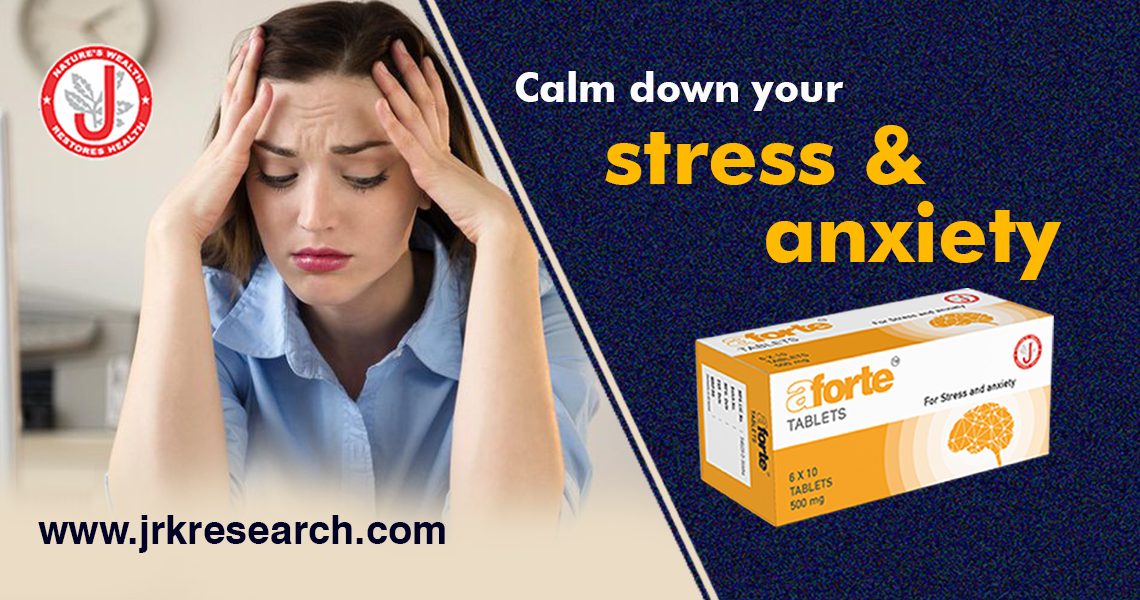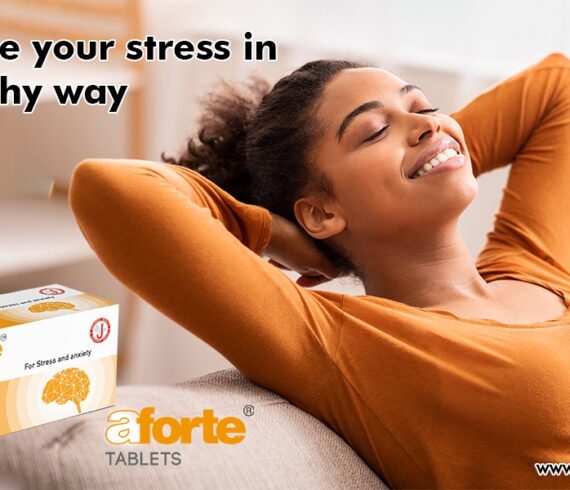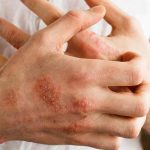

STRESS – THE BANE OF MODERN EXISTENCE
In today’s society, we thrive on performance, competition and perfection, which leads to increase in stress levels. Stress causes damage that is often underestimated and it is a social phenomenon that should be closely examined and evaluated. These days, society and the workplace put an unparalleled level of pressure on people
Anxiety may be transient, persistent, episodic or limited to specific situations. Mostly anxiety is part of a transient adjustment to stressful events and disorders. If the anxiety is severe and persistent, active management is required. Otherwise counselling and change of environment is enough.

Anxiety & Stress – Causes
Finding the root cause for anxiety and stress is strenuous exercise. But most of cases have one or more of the following causes.
- Genetic– If early onset occurs, genetic predisposition is important factor.
- Occupation, life style and domestic problems.
- Old age and lack of social support.
- Chronic diseases.
- Economic insecurity
- Substance (Drug) misuse.
- Alcohol withdrawal- Alcohol consumption is one of the major causes for anxiety
- Medical cause – Psoriasis, Hyper thyroidism, Hypoglycemia and epilepsy.

Types of treatment
Psychological:
Understanding the root cause and counselling the patients
One recommendation commonly offered by doctors is counselling and psychotherapy. Talking with a professional about the difficulties you’re experiencing can help you understand any underlying

issues that may be causing your stress – for example, low self-esteem. Working with your counsellor, you will then be able to identify your personal stress triggers and discuss ways of coping with them.
Mindfulness
One form of therapy recommended for those struggling with stress is mindfulness. This approach comes from a Buddhist meditation technique and focuses on paying attention to the present moment, rather than worrying about past or future events. Whilst focusing on the present moment you are encouraged to notice how your body is feeling and what thoughts come and go, without judgement.
Modification in the lifestyle
Lifestyle modification for stress relief is one of the most difficult things to accomplish. Stress is your biggest enemy, but a change in lifestyle can free you from your stress addiction.

The first step is awareness. Instead of helicoptering over others and taking care of their needs, helicopter over yourself. See the pattern. Create some special time for yourself by shedding one thing from your to-do list. How does this make you feel? The next day, let go of another chore. Instead of that to-do list, create a “look what I did today list.” Find an activity which makes your heart sing and revive the inner child who had hopes and dreams

When you are highly stressed, walk it off wearing headphones. Music and exercise create a great synergy to release stress. Walk with headphones outdoors in the light and you can reset your natural rhythm, the more intense the stress, the longer the walk.
Food habits
Food and mood correlate. Even the order in which you eat your food is important. If you’re faced with a lot of stress, it can take hold of your eating habits. When you’re feeling stressed, your body sends out cortisol, known as the stress hormone. Cortisol can make you crave sugary, salty and fatty foods, because your brain thinks it needs fuel to fight whatever threat is causing the stress.

Make these foods a part of your anti-anxiety diet
- Foods rich in magnesium – Spinach, legumes, nuts, seeds and whole grains
- Foods rich in zinc – oysters, cashews, liver, beef, and egg yolks lowers anxiety
- Eating probiotic-rich foods such as pickles, sauerkraut and kefir lowers anxiety
- Foods rich in B vitamins – avocado and almonds
These “feel good” foods spur the release of neurotransmitters such as serotonin and dopamine. They are a safe and easy first step in managing anxiety.
Sleep cycle

Sleep is a powerful stress reducer. Following a regular sleep routine calms and restores the body, improves concentration, regulates mood, and sharpens judgment and decision-making. You are a better problem solver and are better able to cope with stress when you’re well-rested. Lack of sleep, on the other hand, reduces your energy and diminishes mental clarity.
Yoga and meditation /Exercise

Exercise is vital because activity alleviates anxiety. Exercise releases damaging stress hormones, increases feelings of empowerment and improves focus. Exercise breaks you out of a negative mindset because ‘you mind your muscle’.

Yoga and meditatin enhance your mood and overall sense of well-being and improved fitness. Practicing yoga may lead to improved balance, flexibility, range of motion and strength.
Keeping note of thoughts

Writing about positive emotions may help to reduce stress and anxiety. An advantage of writing about positive emotions to tackle stress and anxiety is its simplicity. Unlike many other strategies for improving psychological well-being, this task needs no training or time spent with a therapist. People can do it at a time and place that is convenient for them – and it’s free.
In persistent stress and anxiety -Medication support is required
Allopathic
Selective serotonin reuptake inhibitors (SSRIs)
- citalopram (Celexa)
- escitalopram oxalate (Lexapro)
- Bupropion is used to treat depression
- Diazepam is used to treat anxiety
Side effects
- Addiction to the drugs
- Nervous weakness
- Nausea
- Dizziness
- Stomach cramps
- Bloating
- Diarrhea
- Increased bowel movements
- Fatigue
- Dry mouth
- Sleep disturbances
To get rid of all such side effects, opt for treatments that have nil side effects
Herbal treatments available with no side effects
- Ashwagandha (Withania somnifera) is an adaptogen and Ayurvedic remedy. It is effective in reducing anxiety.
- Bacopa could also reduce cortisol. Cortisol is known as the stress hormone.
- Valerian root promote sleep and reduce anxiety.
One such herbal treatment to deal with stress and anxiety – Dr.JRK’s Aforte
Dr.JRK’s Aforte tablet contains Aswagandha and Centella Asiatica in its composition at optimum dose. Regular use of Aforte tablets as per physician’s advice gives relief from stress.
Positive benefits
- No side effects
- Non-drowsy anxiolytic
- Improved health
- Sense of control
- Enhanced self-esteem
- Less likelihood of depression
- Overall improvement in quality of life
Usage Instructions
Adult: 1 tablet in the morning and 1 tablet in the night after food.
Children above 5 years: 1 tablet in the night after food.
(OR)
As directed by the physician.
http://www.jrkresearch.com/aforte-tablets.php








